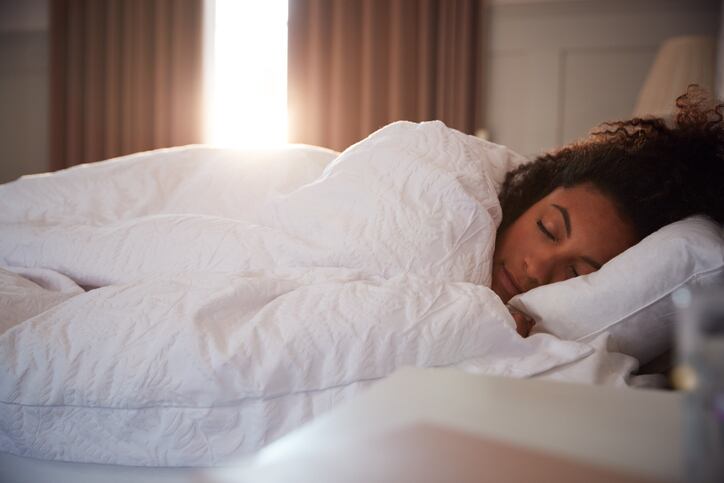Evidence of a potential link between the gut microbiome and sleep quality has been emerging for some time, but the mechanisms for how prebiotic diet-induced changes in the gut microbiota impact stress physiology remain unclear.
This study, published in the journal Scientific Reports, points out that there is emerging evidence that bacterial dependent metabolites, such as short chain fatty acids and secondary bile acids, can signal the brain through the blood and/or vagal afferents. The researchers therefore theorised it is feasible that diets high in prebiotics produce changes in the gut metabolome that signal the brain and impact complex brain functions.
The team compared an array of physiological measured in male rats fed either standard chow or chow infused with prebiotics.
The prebiotic diet included very high doses of four specific prebiotics, including: galactooligosaccharides, which are present in lentils and cabbage; polydextrose (PDX) an FDA-approved food additive often used as a sweetener; lactoferrin, found in breast milk; and milk fat globular protein, abundant in dairy products.
They found that rats fed the prebiotic diet spent more time in restorative non-rapid-eye-movement (NREM) sleep. After stress, they also spent more time in rapid-eye-movement (REM) sleep, which is believed to be critical for recovery from stress.
Rats eating standard chow saw an unhealthy flattening of the body's natural temperature fluctuations and a drop in healthy diversity of their gut microbiome after stress, whereas those fed prebiotics were buffered from these effects.
Senior author and Integrative Physiology Professor Monika Fleshner, director of the Stress Physiology Laboratory, said: "We know that this combination of dietary fibers helps promote stress robustness and good sleep and protects the gut microbiome from disruption. With this new study, we wanted to try to identify the signal."
Delving deeper
Using a technology called mass spectrometry to analyse the rats' faecal samples, the researchers measured the bioactive small molecules produced by bacteria as food is broken down, called metabolites.
They found rats on the prebiotic diet had a substantially different metabolome (make-up of metabolites). Theirs was higher in dozens of them, including fatty acids, sugars and steroids which may, via gut-brain signalling pathways, influence behaviour. The rats' metabolome also looked different after stress.
For instance, the rats on the standard chow diet saw dramatic spikes in allopregnanolone precursor and Ketone Steroid, potentially sleep-disrupting metabolites, while those on the prebiotic diet saw no such spike.
"Our results reveal novel signals that come from gut microbes that may modulate stress physiology and sleep," said Fleshner.
Natural sleeping pill
While prebiotic dietary fiber is certainly healthy, it's uncertain whether just loading up on foods rich in it can promote sleep.
Prebiotic supplements already abound on natural food store shelves. But Fleshner said it's too soon to say whether a supplement or drug containing such compounds would be safe and effective for everyone. Depending on what their microbial make-up is, different people might respond differently.
"These are powerful molecules with real neuroactive effects and people need to exercise some caution," she said.
Human studies are already in the works at the University of Colorado Boulder.
Ultimately, Fleshner believes what they are learning in her lab could lead to a new class of options for people who can't sleep but don't like taking narcotics.
"Armed with this information, we might be able to develop a targeted therapeutic that boosts the molecules that buffer against stress and tamps down the ones that seem to disrupt sleep," she said. "It's exciting to think about."
Source: Scientific Reports
Fleshner. M., et al
"Dietary prebiotics alter novel microbial dependent fecal metabolites that improve sleep"


